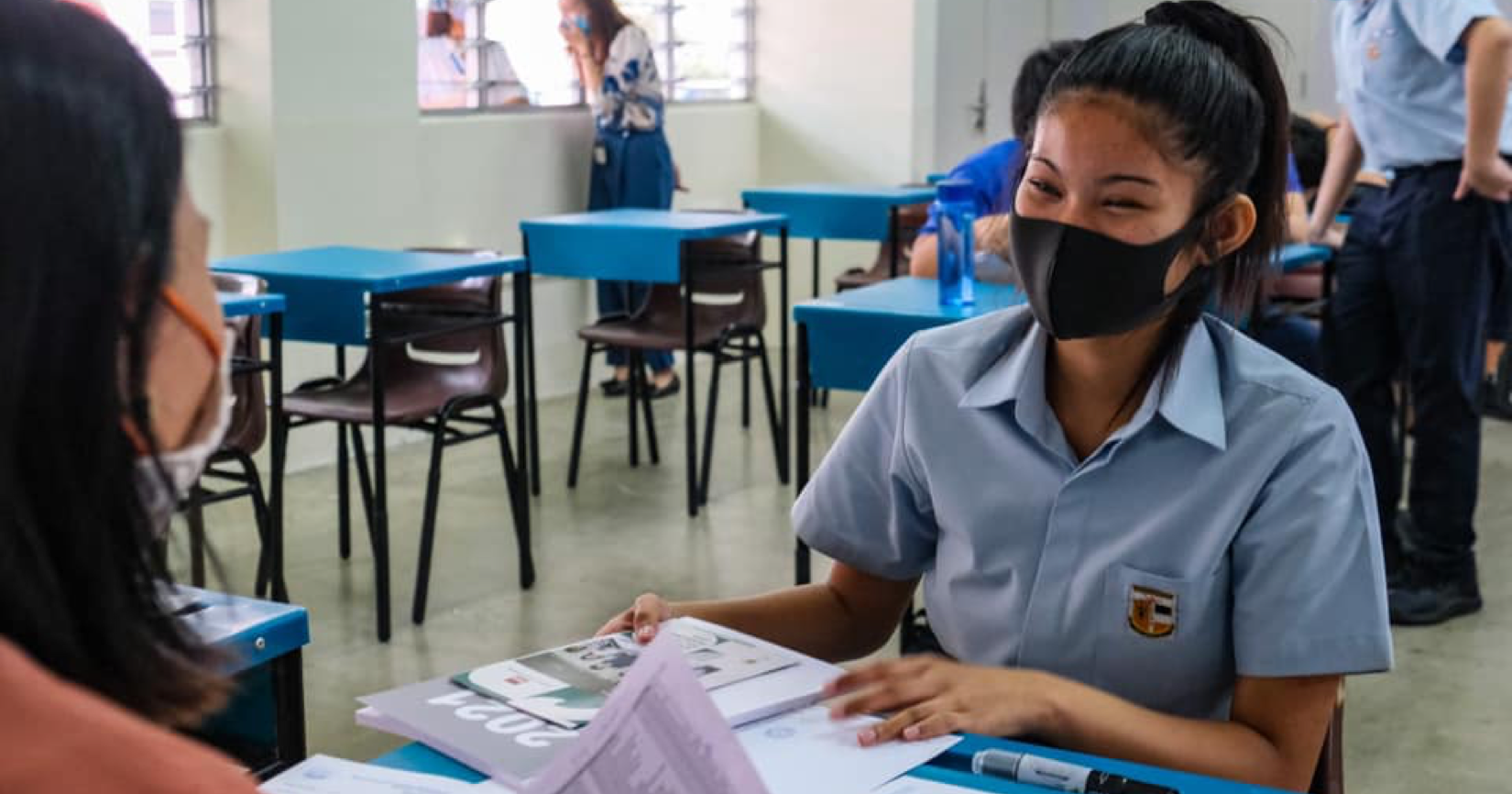Back in the day, the idea of staying home from school to study would have been deemed unworkable.
But having gone through a pandemic with students studying at home for continuous periods, the Ministry of Education will now build off that experience to implement Blended Learning, beginning in Term 3, 2021.
In a speech on Dec. 29, Education Minister Lawrence Wong said, "We all want our students to be adaptable and nimble, and to keep learning and picking up new skills. We want our students to have a positive attitude towards learning, and be more self-directed and intrinsically motivated."
He added that educators saw that home-based learning helped to instil such attitudes in students, and shared that all secondary schools, junior colleges and the Millennia Institute will start to implement Blended Learning from next year.
Blended Learning
Home-based learning will be part of the Blended Learning initiative, and will be conducted on a "regular basis" throughout the school year, usually a day at a time.
There will be regularly-scheduled home-based learning (HBL) days.
HBL days will also be less structured than a typical day in school so students may "exercise initiative" while learning.
This will complement in-school lessons. According to MOE:
"For example, during HBL Day, students may be tasked to learn a new mathematical concept by watching an instructional video and solving problems online via the Singapore Student Learning Space (SLS) platform.
When they return to school, they can discuss the solutions to the problems in class to deepen their learning with their teachers and peers."
Students will also be given time and space for student-initiated learning to go beyond the curriculum and explore their own areas of interest.
This could range from learning how to play a musical instrument by watching an online video to embarking on a pottery-making class organised by the school in partnership with an external organisation.
School facilities and resources will be made available for students on such days. MOE added:
"High-needs students, students who require supervision, or students who lack a home environment conducive for learning could return to school on HBL Days based on their school’s discretion."
Personal learning devices
But not every student has access to a computer or other device to help them study at home.
To alleviate this, MOE will make personal learning devices available for all secondary-school students, moving the initial timeline of 2028 up to 2021, due to the pandemic accelerating the use of technology in teaching.
There is also a pilot to trial the use of such devices for primary school students.
According to Wong, a one-off Edusave top-up of S$200 has been given to all eligible Singaporean citizen students, in addition to the annual Edusave deposits, to ensure they have enough to pay for the device.
For students from lower-income families, additional financial assistance will be given. MOE is also working with the Infocomm Media Development Authority (IMDA) to help provide subsidised broadband access to needy students.
Devices will also be fitted with applications to minimise distractions.
Support for students in schools
In addition to device-assisted learning, schools will also boost support for students from homes with less support.
After-school programmes will be enhanced and needy students will be enrolled in Student Care Centres.
The number of Student Welfare Officers will also be increased, from 60 to 130 over the next few years.
Wong said that together with individual programmes, principals will also play a key role in instilling a culture of inclusivity in every school.
Related story:
Top image from Lawrence Wong's Facebook page.
If you like what you read, follow us on Facebook, Instagram, Twitter and Telegram to get the latest updates.
